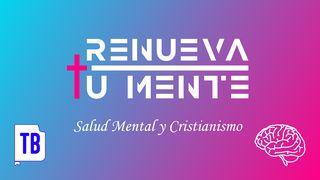The Essential Question (Part 5): The Good News Is for EveryoneMuestra

The Divine Choreographer
Prepare: Reflect on the ways that God has intervened in your life. How have you responded to Him?
Read: Acts 10:1-48
Reflect: It's difficult for us in the twenty-first century to appreciate what a big deal this meeting between Peter and Cornelius really was. Even though God's original plan was to bless the whole world through His chosen people (Genesis 12:1-3), by the first century Jews had developed strong hostility toward Gentiles and viewed them as outside God's plan of salvation. In fact, good Jews weren't supposed to visit, much less eat with, Gentiles. So when Peter went to Cornelius's house, he was breaking religious tradition, big time.
At first glance it might seem as though Cornelius's angelic vision came out of the blue, but the fact is, he had been seeking God for a long time. Luke tells us that Cornelius was God fearing, generous and prayerful (Acts 10:2). In other words, even as a Gentile he was living what author Leighton Ford calls "the attentive life," and that's what prepared him for this encounter with God. How encouraging to know that God is aware of our prayers and acts of service (Acts 10:4), and that "he rewards those who earnestly seek him" (Hebrews 11:6).
Meanwhile, Peter was having his own divine encounter, though it was physical hunger that particularly prepared him to hear God's voice this time. "Kill and eat" (Acts 10:13) is a jarring statement, especially for politically correct modern ears. But God was being direct because He wanted no misunderstanding. Over the centuries, human rules and traditions had obscured His saving purpose. So at this formative stage of the church, God stepped in to make a course correction. The good news, and therefore the church, was for everyone. As the apostle Paul later wrote, "So in Christ Jesus you are all children of God through faith, for all of you who were baptized into Christ have clothed yourselves with Christ. There is neither Jew nor Gentile... for you are all one in Christ Jesus" (Galatians 3:26-28 NIV 2011).
Maybe the Jew-Gentile tension is not as active today, but are there individuals or groups of people you can't imagine coming to genuine faith in Christ? If we let them in, it'll ruin the church. But the flaw in that attitude is this: keeping people out is what ruins the church. When Peter finally had his moment of realization (10:34-38), he understood the scope of God's good news: "everyone who believes in him (Jesus) receives forgiveness of sins through his name" (10:43). The chapter ends with yet another outpouring of the Spirit (10:44-46) and reminds us that God, the Divine Choreographer, is the One who has been orchestrating His plan of salvation from the very beginning.
Apply: Make a list of individuals and groups of people that you have trouble imagining could ever come to faith in Christ. Now ask the Divine Choreographer to make them open to His plans for them.
Escritura
Acerca de este Plan

In 50 carefully selected passages from the Bible, you will discover the essential question Paul asked the Lord while he was traveling to Damascus: "What shall I do, Lord?" Have you ever asked yourself, "What difference am I making with my life?" On some level, we all struggle to find our own answer to that fundamental question. The search for significance is the underlying motivation for virtually all human activity.
More
Planes relacionados

Rescatados Por Gracia

La Compasión Por Encima De La Crítica: Ver La Ansiedad Desde Una Nueva Perspectiva

Nuevos Comienzos Con Dios

De orilla a orilla: un viaje hacia la reconciliación

Amando Más La Palabra De Dios

Eclesiastés Consejos Para La Vida

Amistades Que Edifican

Una Oración Bíblica Por Los Esposos

De La Vergüenza a La Seguridad
